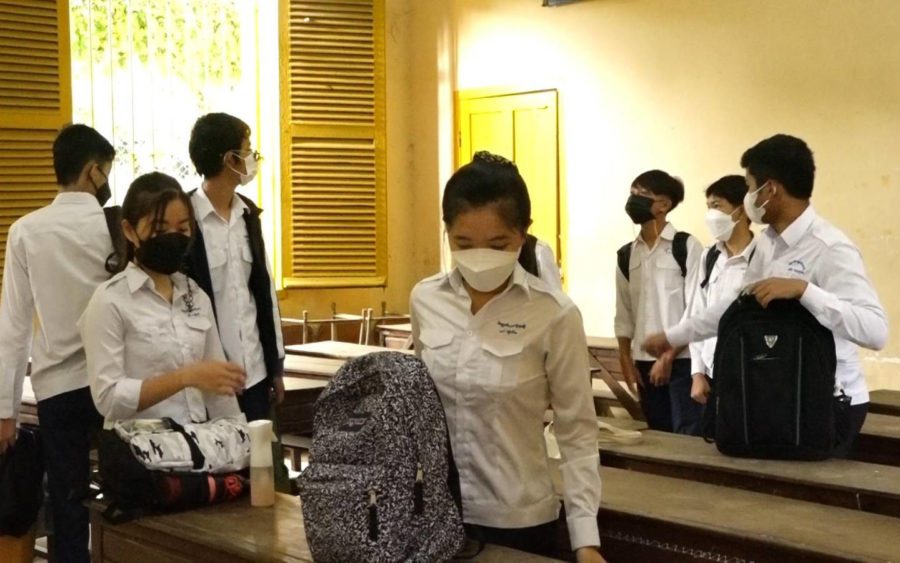An Education Ministry official warned that students who fell behind during Covid-19 school shutdowns will struggle to catch up to previous generations, though an NGO-led education program showed initial positive results for 2nd and 3rd graders in one Siem Reap district.
Kan Puthi, deputy director of the Education Ministry’s primary education department, said on Thursday that based on a 2021 survey by the ministry, students’ ability to read Khmer decreased 7% compared to 2016.
More specific data for 6th graders showed that the percent of students deemed “proficient” or “advanced” in Khmer declined from 36.5% in 2016 to 18.9% in 2021, while 6th graders ranked proficient and advanced in mathematics declined from 44.5% to 19.5% in the same period.
“Even a 1% [decrease] would show students lost a lot of abilities,” he said during a presentation on a catch-up learning project from the organization World Vision.
Puthi said the ministry was taking some actions in order to help students improve their performance, including encouraging teachers to spend the time that they usually have free on the half-day school schedule to teach an extra lesson for one or two hours. The ministry was also considering ways to strengthen the capacity of principals and teaching staff, especially for teachers on short-term contracts in rural areas, as well as encourage parents to assist with learning. He also suggested removing a vacation period in October or November for the next three to five years.
“So with the loss of education quality, we need to fill it back up. Helping the less-caught-up students is the main priority of the ministry,” he said, adding that learning deficiencies now could lead to economic losses for Cambodia in the future.
A supplemental education program for 2nd and 3rd graders in Siem Reap’s Chi Kreng district had helped the 436 participating students improve some of their literacy and math abilities on average, according to research World Vision Cambodia, the local arm of an international Christian development organization.
The “catch-up” program involved 20 volunteers trained on the students’ syllabi, who provided two hours of extra studies each weekday for six weeks.
After taking a supplemental education program for Khmer literacy and mathematics between March to mid-May, the participating students’ average scores increased from 64% to 78% in literacy, while average mathematics scores increased from 72% to 85%.
Female students outperformed male peers across all metrics, according to the study. The research also showed that the percent of students ranked by World Vision as “proficient” increased between the start and the end of the program.
World Vision Cambodia concluded that they should extend supplemental education programs in order to get better results.
Previous research studies by the Education Ministry and Unicef have shown increased levels of failure in Khmer and mathematics after schools shut down and students struggled to study on their own and by videoconference.













